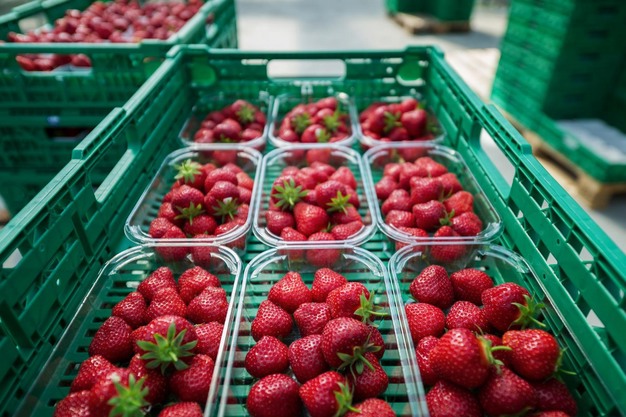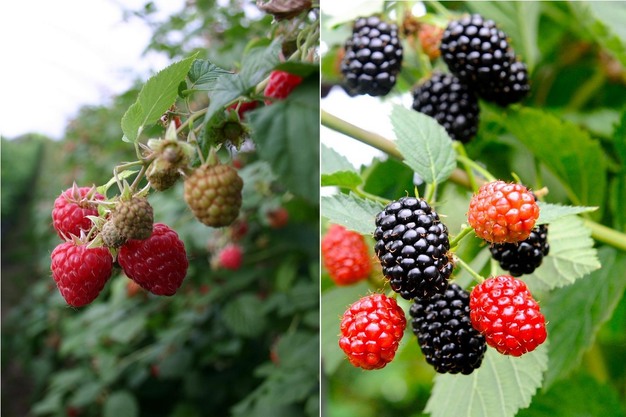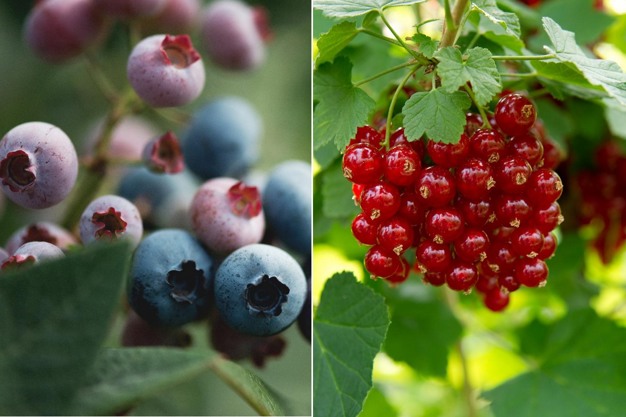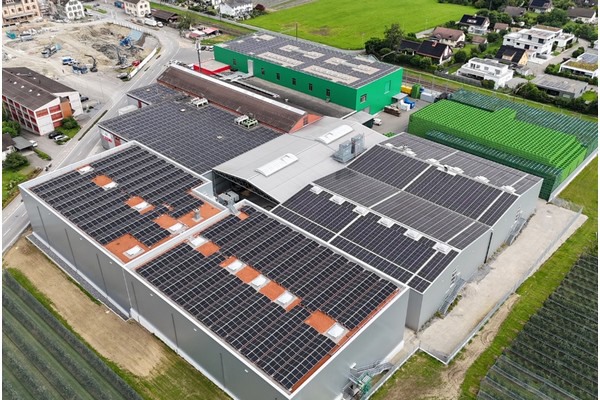The predominantly wet and sunless weather this summer has also affected Swiss berry cultivation. "We are seeing increased disease pressure, particularly in blackberries and blueberries, and the cherry vinegar fly in particular is causing extreme problems for producers in some cases. We actually need a few days with temperatures above 30 degrees to decimate the population," explains Martin Egger, operations manager at Tobi Seeobst AG in Egnach.
Strawberries: Up to 50 per cent loss in the fields
The Swiss berry harvest began with the first tunnel strawberries in mid-April. A satisfactory harvest from protected cultivation was followed by an overall difficult open field harvest, says Egger. "The open ground harvest started very early this year: the first fruit from the Rhine Valley was available at the beginning of May, and by mid-May we were able to deliver Swiss open ground produce across the board. The price level has been high and stable since the beginning of the season, as we never had a full supply. The usual price reduction during the peak season did not materialise this year."
According to Egger, outdoor cultivation in summer tends to become more difficult. "This year, too, there are plants with up to 50 per cent failure. As a result, interest in protected cultivation is growing, especially in greenhouses. However, applying for the necessary planning permission is a lengthy and complicated process."

Domestic strawberries from protected cultivation are expected to be available until late October.
Raspberries: Quantities failed to materialise for a long time
Similar to strawberries, the drop in prices for local raspberries has not been as pronounced this year. Egger: "We've only been harvesting reasonable quantities of raspberries for a few weeks, i.e. around 30 tonnes a day. Accordingly, the price level has been quite high and stable since the beginning of the season, as the supply volumes were too low in relation to demand."

Left: Raspberries are only available from protected cultivation.
Right: A plentiful harvest of blackberries is expected this year.
Blueberries: Record harvest despite disease pressure
Meanwhile, blueberries also started at the end of June with pleasing volume forecasts. "Despite the aforementioned disease problems, we are expecting a record harvest this year," enthuses Egger. Due to the tough competition for blueberries, it is sometimes difficult to place local produce in the first half of the season. "As there are no import restrictions on blueberries, Swiss produce is in direct competition with low-priced imports from countries such as the Netherlands, Poland and Germany. To make matters worse, this year's imported goods are even slightly cheaper than in previous years. Nevertheless, we have noticed that Swiss blueberries are becoming increasingly popular with consumers, even though they are considerably more expensive to buy."

Blueberries and currants from Swiss production.
Blackberries: Promotions at PoS are crucial
The main blackberry harvest began in the second half of July. "We are currently enjoying a full supply in Switzerland. In terms of marketing, however, we are heavily dependent on promotions at the point of sale. There have already been two or three years in which retailers have only run a few promotions, which has also been the producers' downfall, as there have been overstocks. However, this is not the case this year: "Retailers are prepared to run promotions so that the abundant quantities can be placed accordingly," explains Egger.

Aerial view of the Egnach site.
Currants and gooseberries: Rain impairs shelf life
Tobi Seeobst AG's wide range of berries is rounded off by redcurrants and gooseberries. Thanks to modern ULO storage capacities, both berry crops can be marketed deep into the autumn in some cases. "Unfortunately, the excess rainfall has had a negative impact on the storability of the fruit, causing it to rot more quickly. There have already been years in which we were able to market Swiss currants well into December. That will definitely not be the case this year. On the contrary, it cannot be ruled out that we will have to end the marketing season early."
Pictures: Tobi Seeobst AG.
For more information:
Martin Egger
Tobi Seeobst AG
Bucherstrasse 3
CH-9322 Egnach
Tel: +41 (0)71 / 474 70 21
Email: [email protected]
www.tobi-fruechte.ch
